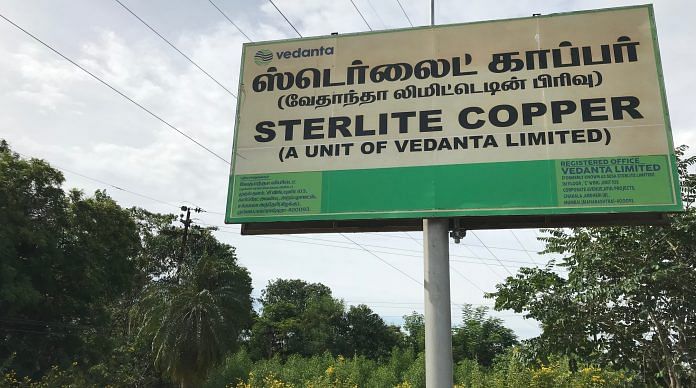[ad_1]

Text Size:
New Delhi: Nearly three years after its plant was shut down in Tamil Nadu over environmental concerns, the Vedanta group is again looking to enter into the copper smelting business.
In a newspaper advertisement Wednesday, Vedanta announced its plans to set up a copper smelter plant in a coastal region in India and invited Expression of Interest (EOI) from state governments who wish to partner with the company.
The decision to set up a new plant comes amid a sharp rise in copper prices globally, and at a time when there is no certainty if it will be able to resume operations at its existing copper smelter plant in Thoothukudi in Tamil Nadu.
“The copper smelter of 500 KTPA will require footprint of around 1,000 acres in proximity to port along with logistics connectivity with conveyor/corridor of rail & road to handle 5 mtpa material movement on both in-bound and out-bound side,” said the Expression of Interest.
“This mega project has investment potential of around INR 10,000 crore, provide direct and indirect employment to 10,000 people and will contribute INR 3,000 crore to the exchequer annually,” it said.
The capacity of the proposed new plant at 500 kilo tonnes per annum (KTPA) will be higher than the capacity of its shut plant, according to the details provided in the advertisement.
Why the plant shut down
A plant of Vedanta’s subsidiary Sterlite Copper, which had a production capacity of four lakh tonnes, was shut down in May 2018 by the Tamil Nadu government after the state’s pollution control board made a recommendation following violent protests by residents.
The protesters had alleged that the plant posed a health hazard to those living in the area.
Subsequently, Vedanta approached the courts appealing against the state government’s decision. The matter is currently pending in Supreme Court, with the apex court denying the company’s request to provide interim relief and allow reopening the plant.
Fall in copper production
India’s domestic production capacity of refined copper was adversely hit after shutting of the Thoothukudi plant. Since copper is an important input in many industries like transportation, construction, telecommunications, consumer durables and automobiles, the reduction in domestic capacity saw a sharp surge in imports. This resulted in India becoming a net importer of copper for three consecutive years beginning 2018-19, after being a major exporter for years.
In a note dated 18 February, Care Ratings had pointed out that there is a mismatch between demand and supply of refined copper, which had resulted in a sharp surge in copper prices.
“World refined copper balance in the first ten months of 2020 indicates an apparent deficit of about 480 thousand tonnes due to a strong Chinese demand. Chinese apparent usage increased by 14% offsetting usage declines in other regions of the world. Higher demand and supply crunch also led to a sharp fall in inventory levels which lent further support to prices.” it said, estimating that refined copper prices will average to around $6,500-6,800 per annum in 2020-21 as against $5,923 in 2019-20.
(Edited by Neha Mahajan)
Also read: Rising interest rates are squeezing Anil Agarwal’s bid to take control of Vedanta
Subscribe to our channels on YouTube & Telegram
Why news media is in crisis & How you can fix it
India needs free, fair, non-hyphenated and questioning journalism even more as it faces multiple crises.
But the news media is in a crisis of its own. There have been brutal layoffs and pay-cuts. The best of journalism is shrinking, yielding to crude prime-time spectacle.
ThePrint has the finest young reporters, columnists and editors working for it. Sustaining journalism of this quality needs smart and thinking people like you to pay for it. Whether you live in India or overseas, you can do it here.
Support Our Journalism
[ad_2]
Source link







